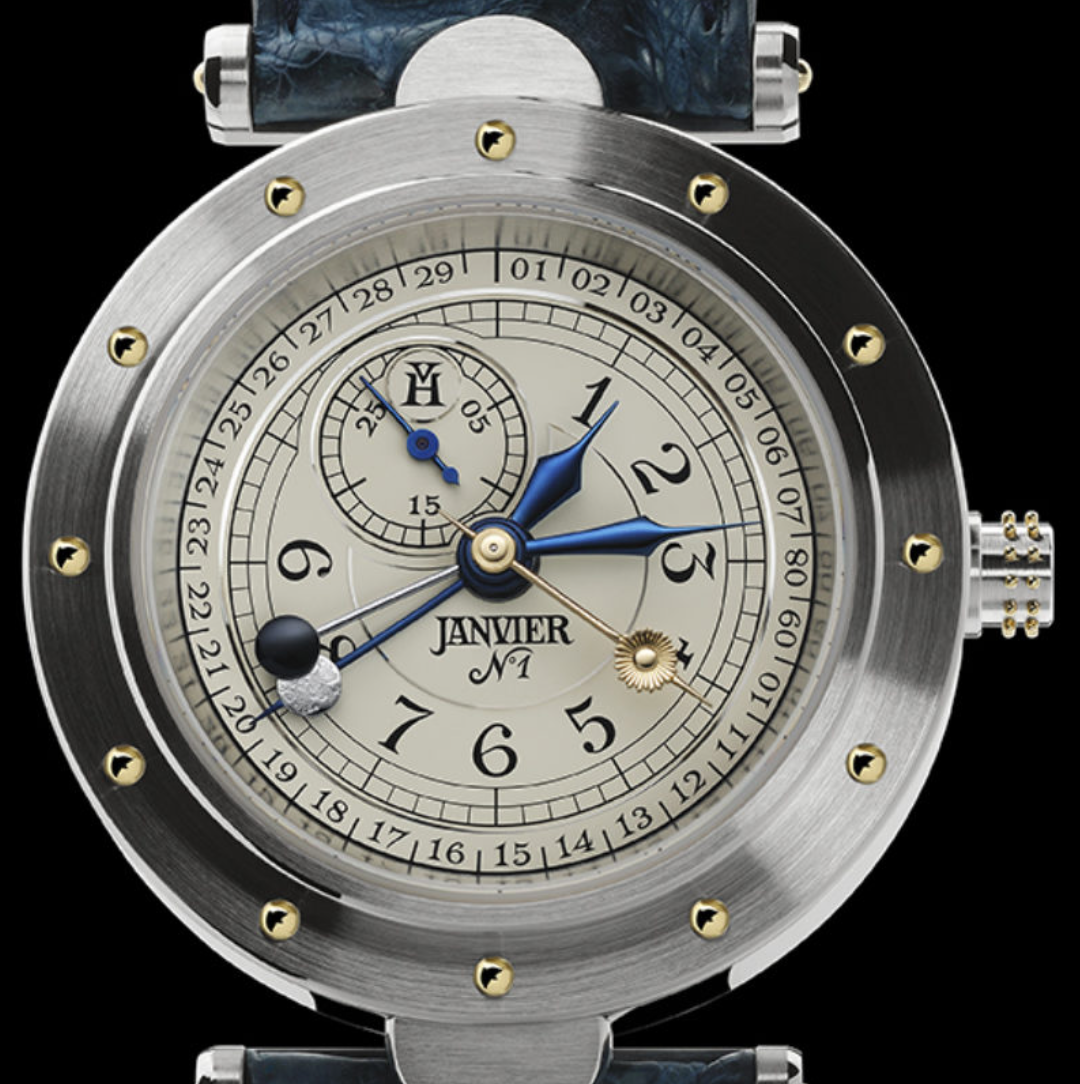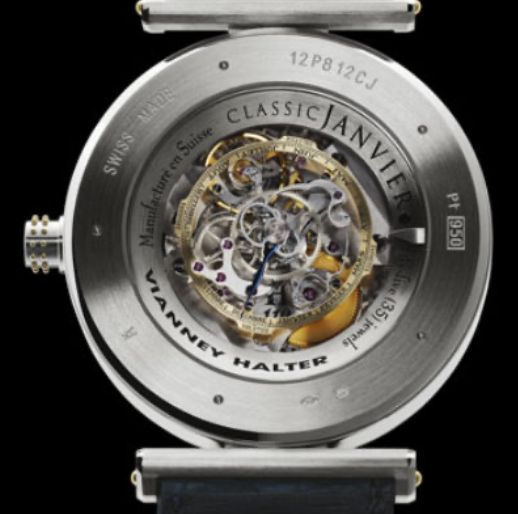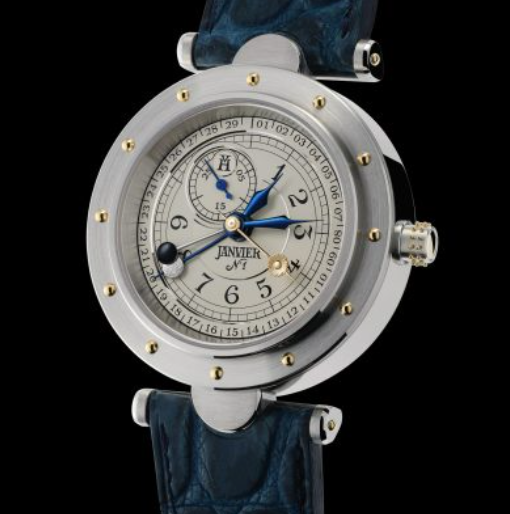Vianney Halter
CLASSIC JANVIER
CLASSIC JANVIER
無法載入取貨服務供應情況
CLASSIC JANVIER N°1
MOON AND SUN, THE ASTRONOMICAL BALLET
Name: CLASSIC JANVIER N˚1
Type: Astronomical complication
Functions: hour, minute, small seconds, walking equation of time, moon phase, lunar calendar, annual calendar
Size: 40 x 40 x 12,5 mm
Material: Platinum
Movement: in-house developed
Calibre VH110
Balance frequency: 28’800 v.p.h.
Components: around 460 including 80 for the Equation of Time Complication
Jewelling: 35 rubies
Winding: automatic, fitted with the patented VH „mystery mass“ winding rotor
Power reserve: 40 hours
Total weight: 175 gr including 145 gr platinum
In 2008, in order to celebrate his ten years of independent creation, Vianney Halter presented the Classic Janvier N°1, a limited series of 12 platinum watches staging time, walking equation of time and moon cycle.
The two astronomical complications of the caliber VH110 are enclosed in an fairly constrained case and a unique riveted porthole, signature of Vianney Halter’s Future Past style from the Antiqua model back in 1998.
This « grande complication » model is a tribute to french watchmaker Antide Janvier (1751-1835). In his times, Janvier was considered the watchmaking enfant terrible due to his short temper and utter genius.
He nonetheless was nicknamed « the clockmaker from the stars » because he excelled in creating horological devices displaying the movement of celestial bodies.
Time used to be based on the position of the sun on the celestial vault. Our contemporary system of timekeeping, using 24 equal hours, does not take the variations of the position of the sun into account. Thus the time indicated on a watch is different from the time one can read using the position of the Sun. This difference is called« equation of time ».
This difference in time slowly varies from +14 minutes to -16 minutes at our latitudes. The equation of time is a consequence of Earth’s orbit anomaly (it is not a perfect circle) and it’s rotation axis tilt.
Nowadays equation of time may seem futile, but could have dire consequences when the precise location of ships at the sea were calculated using three things: the moment of the local sun height on the horizon, the reference time given by the marine chronometer and a correction via the equation of time.
In order to stage the complication, Vianney Halter added a Sun-shaped minute hand that closely follows the average time, blued steel minute hand. With this configuration, a simple glance allows the wearer to know both exact solar time and civil average time simultaneously without having to add or substract anything. Four times per year, those minute hands overlap.
Displaying the equation of time requires the knowledge of the date. To achieve that, a hand-engraved gold ring carrying 365 graduations, as well as equinoxes and solstices allows the wearer to precisely set the day from where the equation is calculated.
To display the moon cycle, Vianney Halter uses two hands, pushing the number of hands to five on one central axis. The bottom hand holds a hand-engraved platinum disc, and the top hand holds a black disc that gradually overlaps the platinum one, displaying the aspect of the moon as it appears in the night sky.
The layout of the walking equation of time, mean time and moon phases is inspired from a desk regulator made by Antide Janvier in 1788 for the King Louis the XVIth.
The delicate walking equation mechanism, including the equation cam, is fully visible on the back of the watch and through the patented mysterious rotor.
The Classic Janvier is an automatic watch whose complications are year-long cycles, which means it needs to be wound or worn regularly if one wants to avoid frequent resettings. That is why the watch is delivered with a winding display box, specially developed by Vianney Halter and decorated by marquetry artist Bastien Chevalier.
The Classic Janvier follows Vianney Halter’s philosophy: user simplicity instead of complexity, thanks to a functionnal display, uncompromising aesthetics and breathtaking mechanics.





